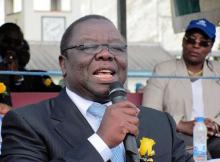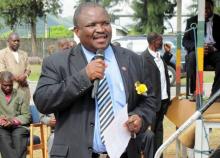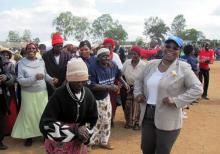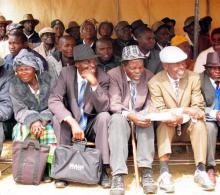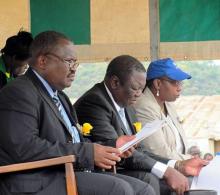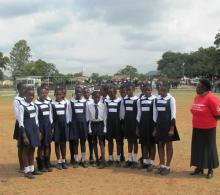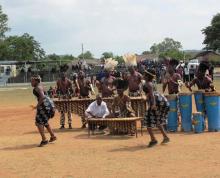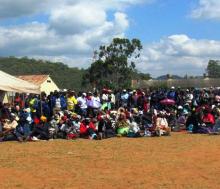“Older people a fountain of wisdom” - Prime Minister on World Health Day
Zvishavane, 13 April 2012 -- The Right Honorable Prime Minister of Zimbabwe, Mr Morgan Tsvangirai was speaking at the commemoration of World Health Day in Zvishavane where he was the Guest of Honor. Zimbabwe commemorated World Health Day on 13th April under the theme Ageing and health: Good health adds life to years at Maglas Stadium in Zvishavane. He said the single most pressing human rights challenge for these fountains of wisdom is poverty which invariably leads to homelessness, malnutrition, unattended chronic diseases, lack of access to safe drinking water, unaffordable medicines and treatment. He said the government is working through the Ministry of Health and Child Welfare to address this through:
- Access to free treatment for persons aged 65 years and over
- Universal Access to free Insect Treated Nets –for protection against Malaria
- Free TB treatment in all health facilities
- Collaborating with NGOs in the provision of Basic Water and Sanitation
“Older persons are important to any society and nation but their contribution can only be fully realized if they maintain their health and if barriers that prevent their engagement in family and community life are broken down,” said Prime Minister Tsvangirai. He also said that the Government has come up with an Older Persons Bill which will provide for the establishment of the Older Persons Board that will focus on the rights of the elderly.
The passing of such a bill was welcomed by the elderly who were gathered in Maglas Stadium because it will go a long way to address their issues.
Affirming the RD’s message to mark the day, WHO Representative to Zimbabwe, Dr Custodia Mandlhate said that although ageing is a natural process, good ageing requires physical, mental and social preparations. She also said elderly people contribute to the development of countries only if they are healthy, hence the need to adopt good policies on ageing.
“The elderly, in Africa have always been revered as the source of wisdom and guardians of beneficial cultural practices, family unity and identity, and they continue to play a pivotal role in the care and support of children, especially AIDS orphans, and in return, the young should take care of the elderly as part of the African extended family ,” said Dr Mandlhate.
This reciprocal relationship of care and support between the elderly and young should be promoted as a key component of achieving healthy ageing.
All speakers on the day reiterated that growing old and being in good health requires the adoption of healthy lifestyles throughout a person’s lifespan. The elderly and the young people that attended were reminded to adopt healthy lifestyles across population groups, such as eating a healthy diet, regular exercise, non-use of tobacco, and refraining from harmful use of alcohol. People were encouraged to promote healthy ageing because it is everyone’s responsibility and it starts from making the right and healthy choices in youth.




